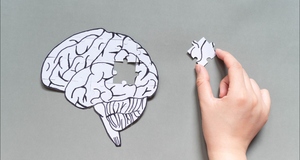Bilingual Episodic Memory and Eye-Witness Testimony
By
2017, Vol. 9 No. 02 | pg. 2/2 | « The Role of Language in Episodic Memories and Eye-Witness TestimoniesThe organization of memories in the mind is determined by language. This is truer for bilinguals. Whether memory is selectively accessed in one language, or if both languages are accessed during recall because that is the way that the memories have been organized changes the way that the memories are remembered and consequently reported (Bartolotti & Marian, 2012). The structure of the language itself changes the way that an event gets reported. For example, Spanish language users describe events using non-agentive language, whereas English language users describe events using agentive language. It changes the perception of the event entirely, as well as the blame that gets assigned. Similarly, the wording of the questions changes the way that eye-witnesses respond. In a study that was conducted, “how fast were the cars going when they crashed into each other?” got very different answers from the question “how fast were the cars going when they hit each other?” The subtle changes in the wording of the question change the perception of the event in the mind of the eye-witness, and consequently shift their answer to align with the question. This is true for bilinguals too. The language of questioning makes a difference to the case (Schroeder & Marian). This is due to a phenomenon known as encoding specificity. According to this phenomenon, memory recall is improved when the contextual clues present at the time of encoding are also present during retrieval. Similarly, episodic memories are more easily and accurately recalled in the language that they were encoded in than in another language (Bartolotti & Marian, 2012). The knowledge of two languages and the subsequent retrieval and recounting of episodic memories requires a shift in perspective from the present to the past. This ability to shift, and the awareness of the shift, known as autonoetic consciousness is a crucial process in eye-witness testimony. The right kind of environment needs to be provided to individuals to ensure accuracy of retrieval (Hassabis & Maguire, 2007).A certain language specific mechanism is trying to establish the idea that the language that a person speaks shapes the way that the individual thinks and behaves (Kay & Kempton, 1984). The linguistic structure and cultural associations influence perceptions of the world. This has resulted in the hypothesis that memories are cued by a particular way of thinking or acting characterised by the primary language being used, influenced by the second language spoken by bilinguals (Schroeder & Marian). ConclusionLanguage guides our every thought, perception and action. The knowledge and use of two languages implies there is an inter-play of the two languages that shape thought processes, perceptions and actions. One of the major aspects of the brain that is impacted by bilingualism is the formation and retrieval of memories, specifically episodic memories. Depending on the linguistic context that is present at the time, the encoding process changes in accordance with the syntax, phonetics, grammar, and cultural aspects of the language. Consequently, the retrieval process too, is influenced by the linguistic context (among other factors). present at the time of recall. Through a process known as encoding specificity, it has been established that similar linguistic and external contexts make the retrieval of specific episodic memories easier and more accurate in bilingual individuals. Since episodic memories record events that can be pinned down to a specific location and time, they are greatly relied upon to help in court cases through eye-witness testimony. The reliability of episodic memory is called into questions because of the malleable nature of memories and the easy falsification of memories through suggestive questioning, or simply, the passage of time. However, with the right processes, it is possible to elicit accurate memories from individuals taking into account their individual perceptions and influences. With bilinguals, the process becomes complicated due to the presence of two linguistic influences that shape bilingual thoughts and perceptions in a unique way. Special care needs to be taken when extracting memories from bilingual minds, keeping in mind encoding specificity, and the use of language that will yield very different results in response to subtle differences in the way that bilingual witnesses are questioned. There is a great need for further research in this field. Multiple researchers have established relationships between bilingualism and episodic memory, and episodic memory and eye-witness testimony accuracy. However, there is almost no data available on the structure of bilingual episodic memory and the consequent impact it has on eye-witness testimony accuracy. In today’s world, a very large percentage of people are bilingual or multilingual, which makes this an extremely relevant and necessary topic for empirically established research. ReferencesAllen, T., & Fortin, N (2013, June 18). The evolution of episodic memory. Proceedings of the National Academy of Sciences of the United States of America, 110, 10379-86. Baddeley, A (2001, September 29). The Concept of Episodic Memory. Philosophical Transactions: Biological Sciences, 356(1413), 1345-50. Bartolotti, J., & Marian, V (2012). Bilingual memory: structure, access, and processing. 7-47. Beardsmore, H (2008). Multilingualism, Cognition and Creativity. International CLIL Research Journal, 1(1). Bialystok, E., Craik, F., Green, D., & Gollan, T. (2009, December). Bilingual Minds. Psychological Science in the Public Interest, 10(3), 89-129. Chen, S (2014, September). toward a social psychology of bilingualism and biculturalism. Asian Journal od Social Psychology, 1(11). Craik, F., & Lockhart, R (1972). Levels of Processing: A Framework for Memory Research. Journal of erbal learning and verbal behaviour, 671-84. Goldstein, E (2011). Short Term and Working Memory. In E. Goldstein, Cognitive Psychology (Third ed.). Cengage Learning. Hassabis, D., & Maguire, E (2007, June 4). Deconstructing episodic memory with construction. Trends in cognitive sciences, 11(7). Kay, P., & Kempton, W (1984, March). What is the Sapir-Whorf Hypothesis? American Anthropologist, New Series, 86(1), 65-79. Laub, D (1992). An Event Without a Witness: Truth, Testimony and Survival. In S. Felman, & D. Laub, Testimony:Crises of witnessing in literature, psychoanalysis, and history (pp. 75-92). United States of America: Routledge. MacLeod, C (1976). Bilingual Episodic Memory: Acquisition and Forgetting. Journal of Verbal Learning and Verbal Behaviour, 347-64. Marian, V., & Kaushanskaya, M (2007). Language context guides memory content. Psychonomic Bulletin & Review, 14(5), 925-33. Mayers, A., & Roberts, N (2001, September 29). Theories of Episodic Memory. Philosophical Transactions: Biological Sciences, 356(1413), 1395-1408. Nairne, J., Pandeirada, J., Gregory, K., & Arsdall, J. E (2009). Adaptive Memory: Fitness Relevance and the Hunter-Gatherer Mind. Association for Psychological Science, 20(6), 740-46. Odinot, G (2008). Eyewitness Confidence: The relation between accuracy and confidence in episodic memory. University of Leiden. Leiden: Haveka, Alblasserdam. Odinot, G., Wolters, G., & A.E., G. v (2006). Repeated suggestive questioning, accuracy, confidence and consistency in eyewitness event memory. Pezdek, K., & Lam, S (2005). What research paradigms have cognitive psychologists used to study “false memory,” and what are the implications of these choices? (W. P. Banks, Ed.). Consciousness and Cognition, 16(1), 2-17. Rubin, D (2006, December). The Basic Systems Model fo Episodic Memory. Perspectives on Psychological Science, 1(4), 277-311. Schroeder, S., & Marian, V (n.d.). A Bilingual Advantage for Episodic Memory in Older Adults. Northwestern University. Schroeder, S., & Marian, V (n.d.). Episodic Memory: How Speaking Two Languages Influences Remembering. Northwestern University. Sporer, S (1982). A Brief History of the Psychology of Testimony. Current Psychological Reviews, 323-40. Suddendorf, T., Addis, D., & Corballis, M (2009, May 12). Mental Time Travel and the Shaping of the Human Mind. Philosophical Transactions: Biological Sciences, 364(1521), 1317-24. Tulving, E (1984). How Many Memory Systems Are There? American Psychologist, 40(4), 385-98. Tulving, E (2002). Episodic Memory: From Mind to Brain. Annu. Rev. Psychol., 1-25. Tulving, E., & Thomson, D (1973). Encoding Specificity and Retrieval Processes in Episodic Memory. Psychological Review, 80(5), 352-73. Winter, A (2007, June 3). A Forensics of the Mind. Chicago Journals - History of Science Society, 98(2), 332-43. Suggested Reading from Inquiries Journal
Inquiries Journal provides undergraduate and graduate students around the world a platform for the wide dissemination of academic work over a range of core disciplines. Representing the work of students from hundreds of institutions around the globe, Inquiries Journal's large database of academic articles is completely free. Learn more | Blog | Submit Latest in Psychology |


















